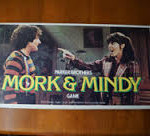August 1, 1996 edition of San Diego Review newspaper
Just more “confused fused clamor?”
By Dwayne Hunn L
Initiative. An honored American quality. We used it to explore and tame a frontier, build infrastructure, agriculture, science, business and general prosperity that is the envy of the world. We slip, fall, make mistakes, but over our 200+ years someone or some group initiates the rebound and pulls us back up.
The Big Bear lifted her leg and ‘sputnicked’ on us. We initiated changes, let American ingenuity take over and hibernated the stodgy Bear. As American businesses lulled themselves into complacency , the Japanese used an American teamwork concept to build better quality products,. Then the drugged American giant initiated changes that some say has catapulted us back into the competitive lead.
Dissatisfaction. Another honored American trait. We use it to change things we don’t like — monotonous labor, poor quality, bullying neighbors, etc. Historically, it has compelled enough AmeriCan-dos to shut up and fix whatever it is we are bitching about.
What American bitches still needs fixing? If you tabulated the last several decades of polls, the results would show that a healthy percentage of Americans would like to see their political institutions infused with some fresh AmeriCan-do initiative.
Of course, dissatisfaction with political institutions, like America’s can-do spirit, seems to be something ingrained in our genes, or at least our jeans, as Alex DeTocqueville’s noticed in 1831-32.
No sooner do you set foot upon America ground, than you are stunned by a kind of tumult; a confused fused clamor is heard on every side; and a thousand simultaneous voices demand the satisfaction of their social wan. Everything is in motion around you….. Meetings are called for the sole purpose of declaring their disapprobation of the conduct of the government; whilst in other assemblies, citizens salute the authorities of the day as the fathers of their country.
Today perhaps that level of political participation may not exist among the same proportion of the populace as it did then, but at times you are reminded that the instinct still exists. It was probably in the jeans you saw in the anti-war and anti-government rallies and meetings of the 1960’s & 1970’s. You may be viewing that graying instinct as third, fourth and fifth parties organize today.
From the couch potato, who registers his time with a poll, to the activist, who climbs his hook and ladder up the poll, the desire to improve government is widespread. However, all the techniques that improved our private sector’s inventiveness, quality control, or bottom line will not automatically be useful in improving our government. Of all the tools used to improve performance in both public or private sectors, good training and education seem the most reliable. In the private sector, when workers are given responsibility and authority along with good training and education their productivity generally increases.
- What might that tell us we should do to improve America’s political institutions?
Perhaps, we should better train, educate and responsibly involve Americans in governance.
- How do we best train and educate Americans on how our political institutions should work?
Well, most grown-ups find their best education and training comes from first-hand experiences. So maybe we should more directly involve Americans in governing.
- Are we willing to take the chance on improving Americans first hand experiences in the workings of our political system if that means giving them more authority and responsibility, as we now do to improve some business performances?
If we are willing to give a nation of Americans that responsibility, then the answer to these three questions lies in the word that started this essay. The “Initiative.”
In 1996 twenty-four states and the District of Columbia have the Initiative process. In those states people have the opportunity to get off of their couches, set up their hook and ladder and fight any political fire they want. They can craft legislation, create political strategy, confront and debate corporate executives or political officials. They can experience first hand what it takes to win or lose, and their initiative creation has the potential to gain the voters’ authority, so that the citizenry are directly responsible for the results.
Even though about half of the states have the Initiative, Referendum and Recall process. the citizens of the United States as an entity do not. People’s Lobby started the national initiative process movement in the mid-70’s. popularizing the concept across the country from the doors of an old, clunky yellow school bus. Their efforts culminated with Senate hearings in 1977. Since then three friendly groups, former United States Senator Mike Gravel’s United States Initiative, Former Vietnam Vet and initiative organizer Rick Arnold ‘s Initiative America and Barbara Vincent’s National Referendum Movement, are all working toward offering all Americans a national initiative process.
Many say it is a long overdue process. Others argue it is too messy of a process. Regardless, the philosophy behind giving the people a choice is solidly grounded in the thoughts of our founding fathers. As James Madison said in:
In framing a government which is to be administered by men over men, the great difficulty lies in this: you must first enable the government to control the governed; and in the next place oblige it to control itself. A dependence upon the people is, no doubt, the primary control on the government; but experience has taught mankind the necessity of auxiliary precautions.
The Founding Fathers and Madison sought a balance between what he called a “mixed government” and “free government,” based on their experiences with monarchy and democracy.
Are we in an age where the “primary control on the government” is still the people and the national initiative might be another good “auxiliary precaution(s)?”
Although the radical fringes, whose stupid violence eats away the liberties of those in the vast middle, may disagree, we don’t labor under an authoritarian state today. Many, however, rightfully complain that our various levels of government often fails to respond effectively to felt needs. Consider how ineffectively governments respond to property tax and campaign reform, nuclear plant safety, environmental safeguard — then remember the roles statewide initiatives had to play to implement or force changes in those fields.
Wouldn’t, adding a national initiative process give us another tool to keep authoritarianism even further from out door step, albeit at the expense of making citizens even more unwieldy to deal with for slow or unresponsive elected officials? Isn’t that “confused fused clamor (is) heard on every side; and a thousand simultaneous voices demand(ing) the satisfaction of their social wan” the lifeblood of democracy?
To many experts the Constitution, starting with the words, “We the People of the United States….” implies that the Founding Fathers desired that instruments such as the Initiative process be available to the people. Our founding fathers didn’t consider the comforts of the governments of even elected representatives as much as they considered the rights of the individuals. As Harold Chase, editor of The Constitution and What It Means Today, states in analyzing the Constitution:
These stated objectives make clear the framers’ commitment to the proposition that government should serve to enhance the value and dignity of the individual, as opposed to the proposition to which authoritarian governments have traditionally adhered, that the individual’s highest duty is to serve the state.
Of course the tenth amendment buttresses that argument by reminding all of us that:
“the powers not delegated to the United States . . . are reserved to the States respectively, or to the people,”
The government wasn’t comfortable with the tumultuous protests and public reactions of the 60’s and 70’s that in large stemmed from our Vietnam and civil rights policies. Sometimes those protests turned violent. Had we had the national initiative process as a tool in our Constitutional tool box, would the nation have been better or worse served? Would beneficial results been obtained more or less efficiently? Would the nation have been better educated with or without the national initiative process? Would the availability of the process decreased the likelihood of violence?
Would teachers, activists, anti-war actors, hippies and drop-outs have put more energy into qualifying a national initiative asking Americans to choose whether to drops bombs, build damns or let the dominoes fall then in throwing barbs, blood and obscenities? Would Vietnam have paralyzed and claimed so many American lives and split so many families had we had a national initiative process? Would that initiative debate process have made us a smarter, healthier country than the process Americans had to go through to end that war?
If the existence of the national initiative process would have cut only one year and its costs from Vietnam, or similar stupid ventures in the future, would it have been, or will it be worth having in our future?
People’s Lobby dozen word logo is worth considering:
Final responsibility rests with the people
Therefore never is final authority delegated.


